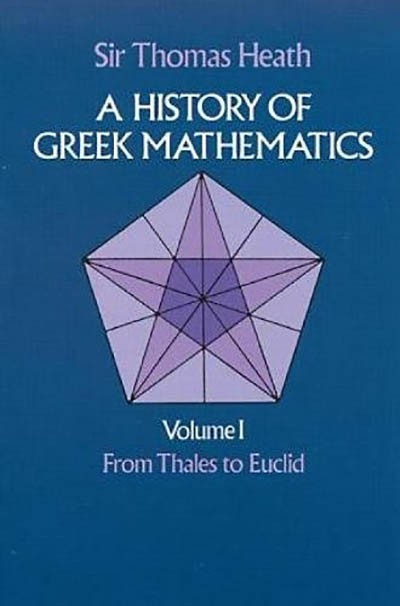A HISTORY OF GREEK MATHEMATICS
VOLUME I FROM THALES TO EUCLID
ISBN: 9780486240732
Συγγραφέας: Sir THOMAS HEATH
Κωδικός: 9780486240732
Άμεση παραλαβή / Παράδοση σε 1-3
Τιμή
22,00€
"As it is, the book is indispensable; it has, indeed, no serious English rival." Times Literary Supplement. "Sir Thomas Heath, foremost English historian of the ancient exact sciences in the twentieth century." Professor W. H. Stahl "Indeed, seeing that so much of Greek is mathematics, it is arguable that, if one would understand the Greek genius fully, it would be a good plan to begin with their geometry." The perspective that enabled Sir Thomas Heath to understand the Greek genius deep intimacy with languages, literatures, philosophy, and all the sciences brought him perhaps closer to his beloved subjects and to their own ideal of educated men, than is common or even possible today. Heath read the original texts with a critical, scrupulous eye, and brought to this definitive two-volume history the insights of a mathematician communicated with the clarity of classically taught English. "Of all the manifestations of the Greek genius none is more impressive and even awe-inspiring than that which is revealed by the history of Greek mathematics." Heath records that history with the scholarly comprehension and comprehensiveness that marks this work as obviously classic now as when it first appeared in 1921. The linkage and unity of mathematics and philosophy suggest the outline for the entire history. Heath covers in sequence Greek numerical notation, Pythagorean arithmetic, Thales and Pythagorean geometry, Zeno, Plato, Euclid, Aristarchus, Archimedes, Apollonius, Hipparchus and trigonometry, Ptolemy, Heron, Pappus, Diophantus of Alexandria and the algebra. Interspersed are sections devoted to the history and analysis of famous problems: squaring the circle, angle trisection, duplication of the cube, and an appendix on Archimedes' proof of the subtangent property of a spiral.
| Χαρακτηριστικά Προϊόντος | |
|---|---|
| ISBN | 9780486240732 |
| Συγγραφέας | Sir THOMAS HEATH |
| Εκδότης | DOVER |
| Επίπεδο | ΠΑΝΕΠΙΣΤΗΜΙΟ |
| Εξώφυλλο | ΜΑΛΑΚΟ |
| Αρ. Έκδοσης | 1η |
| Έτος Έκδοσης | 1981 |
| Σελίδες | 446 |
| Χώρα προέλευσης | Η.Π.Α |
Αυτή η σελίδα προστατεύεται από το σύστημα reCAPTCHA της Google. Μάθετε περισσότερα.













